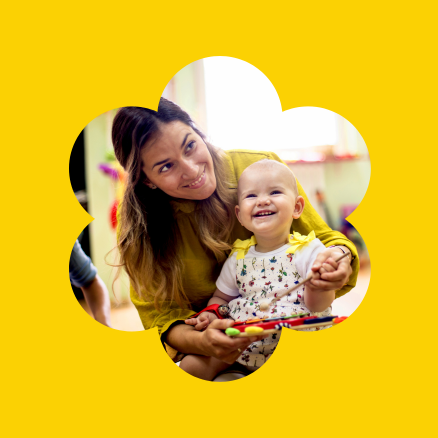Early Childhood Teacher qualification: everything there is to know
Early Childhood Teachers work with young children in childcare, kindy, preschool or OSHC environments. Typically, they’ll work with children between two and five years old to foster their learning and facilitate the development of key skills for the future.
In this article, we’ll dive into the Early Childhood Teacher qualification, uncover the essentials of becoming an ECT in childcare, cover common tasks and duties as well as job opportunities this qualification presents.
How to become an Early Childhood Teacher
What exactly do you need to do to become an Early Childhood Teacher? You’ll need to complete a degree in early childhood education which takes between three and four years of full time study which includes the prac teaching component as well.
There are a few options when it comes to the degree. You can either complete the Bachelor of Education (Early Childhood) or Bachelor of Education (early Childhood and Primary). Alternatively, if you’ve already finished a bachelor degree in another discipline, you can complete a two-year Master or Teaching (Early Childhood) degree.
The prerequisites: what’s required?
The prerequisites for a degree in early childhood education can vary between tertiary institutions however they typically include a year 12 certificate (or its equivalent), with some courses needing specific subjects such as English or Maths. Additionally, a Working with Children Check ensures the safety of our young learners.
Hands on experience
Practical experience is a fundamental part of the degree in early childhood education. You'll be actively involved in placements from as early as your first year depending on where you study. These could be childcare centres, kindergartens or schools and gives you the perfect opportunity to hone your skills, build connections and learn more about the intricacies of being an early childhood educator.
Job opportunities
When you finish your degree in early childhood education you’ll be well equipped to work as a teacher in early learning centres, preschools and kindergartens. Some of the jobs you could work in with this qualification include:
- Childhood education manager (director)
- Second in charge (2IC)
- Outside school hours coordinator
- Family-Day Care Coordinator
- Educational Leader
- Team leader or room leader in a service
Already a registered teacher?
If you hold a primary or secondary teaching qualification, a teacher registration in Australia and an ACECQA approved certificate III level (or higher) early childhood education and care qualification from
ACECQA's list of approved qualifications, you will be recognised as an
'equivalent Early Childhood Teacher'.
Early Childhood Teacher FAQs
What is ECT in childcare?
ECT in childcare refers to an Early Childhood Teacher. An Early Childhood Teacher is a qualified professional who has finished the relevant education and training in early childhood education.
What qualifications are required to become an Early Childhood Teacher in Australia?
To become an Early Childhood Teacher, a degree in early childhood education is needed. This could be a Bachelor of Education (Early Childhood) or Bachelor of Education (early Childhood and Primary).
How long does it take to become a qualified Early Childhood Teacher?
To become an Early Childhood Teacher, it usually takes about three to four years to complete of study to finish your bachelor's degree. This includes any practical, hands-on experience that is required as part of the qualification.
Can I work as an Early Childhood Teacher internationally with an Australian qualification?
You can work as an Early Childhood Teacher internationally if you have a qualification from within Australia. Many countries recognise Australian early childhood education certifications creating many opportunities internationally.
Ratios of qualified staff in centre-based services
Read more about the standards for the number of early childhood qualified staff that must be available in centre-based services that look after children preschool age and younger at any given time.
More Resources









